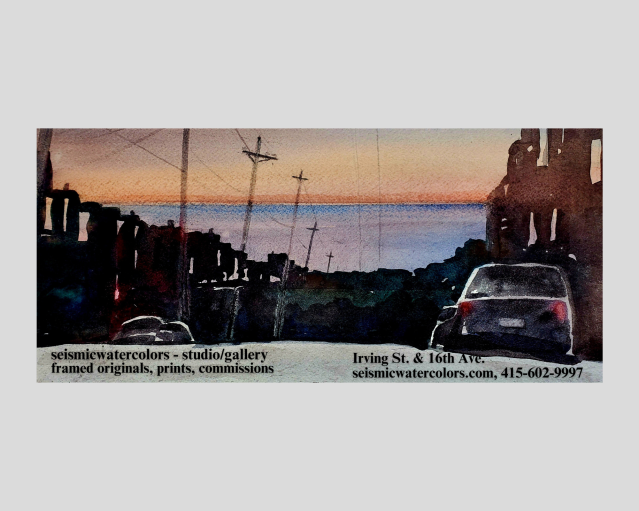By Tyler Breisacher
When I read the story about neighborhood opposition to the Sloat Garden Center project in the April Sunset Beacon, I was immediately ready to dismiss it as pure NIMBYism – a small group of people who say they support new housing in principle, but will always find some excuse to ask it to be built elsewhere, just “not in my backyard.” Sure enough, many of their arguments claiming the project “doesn’t fit the neighborhood” sounded like classic NIMBY talking points.
But one argument in particular caught my eye: Opponent Renee Lazear said the Westerly, just across the street from the proposed site, has been “sitting there for four years pretty much unoccupied. There are very few (condos) that have been sold.”
On this point, she is entirely correct. City planners probably wouldn’t add new Muni lines that no one wanted to ride, or build stores where no one wanted to shop, yet the City consistently permits housing that sits empty for years, because it doesn’t meet San Franciscans’ actual housing needs.
It’s not just the Westerly. Citywide, the housing vacancy rate is about 10%, according to a recent report from the City’s Budget and Legislative Analyst (BLA). That’s 40,458 empty homes where individuals or families could live – in the same city where thousands of people sleep on the streets every night.
Those numbers might be shocking to anyone who has heard that San Francisco has a housing shortage or is failing to meet its Regional Housing Needs Allocation (RHNA) goals. But there is a key point that is sometimes left out of such conversations: RHNA doesn’t just say how many housing units San Francisco ought to build; it specifies separate numbers for different levels of affordability. As the Budget and Legislative Analyst (BLA) report says, developers have actually exceeded the RHNA goal for market rate housing by 6,000 units, while falling short by more than 10,000 units on affordable housing.
It’s as though someone heard that people in San Francisco were going hungry due to a food shortage, and quickly approved 10 new French Laundry locations all over the City, rather than affordable restaurants and neighborhood grocery stores. It would bring more food into the City, but it certainly wouldn’t solve the hunger crisis.
While an upscale restaurant in San Francisco wouldn’t do much to fight hunger, it would likely be quite profitable. So it is with empty homes: In many cases, real estate investors buy them, not to provide housing for anyone, but just as an investment they hope will appreciate in value over time, for a nice easy profit.
That is why several community organizations, including the San Francisco Tenants Union and the Coalition on Homelessness, are working to put an Empty Homes Tax on this November’s ballot. Owners who hold housing empty just to make a profit, rather than to actually provide shelter, will pay an annual tax. Or they can avoid the tax by simply selling or renting the property to someone who will actually live in it. (There are numerous exemptions for units that are empty for legitimate reasons, such as renovations, and temporary vacancies between tenants.)
If the measure passes, perhaps both the Westerly and the new Sloat Gardens project will fill up, bringing new neighbors to the Sunset District, rather than big empty buildings. If you’re registered to vote in San Francisco and you see someone carrying a clipboard with the Empty Homes Tax logo on the back, sign the petition and help get this common-sense measure onto the November ballot!
Finally, I think the opponents’ take on the parking situation warrants some discussion. The San Francisco City Charter says we are supposed to be a transit-first city. We certainly don’t always live up to that, but when planning a big new project, isn’t that the ideal time to look forward and work toward a future in which more people use modes like public transit and bicycles to get around the City, and a lot fewer people use private cars?
Rather than expending energy on opposing new development, I wish neighbors would pressure the City to work toward a more sustainable future – one in which it does much better living up to its transit-first promises; brings more Muni service to the area; adds more and safer bike lanes; builds an affordable bikeshare system that serves the entire City, not just the eastern side – and one where housing is built for people to live in, not for investors to profit from.
Tyler Breisacher is an associate editor at the Sunset Beacon and the Richmond Review newspapers, and a member of the Democratic Socialists of America, one of the organizations supporting the Empty Homes Tax.
Categories: Commentary











STOP 2700 SLOAT BLVD – Learn More @ http://www.sonsf.org
We appreciate your Support !
Help Preserve the Nature & Character of San Francisco Neighborhoods
LikeLike